MNG81001 Report: Virtual Teams for Global Marketing Success
VerifiedAdded on 2023/01/17
|7
|544
|63
Report
AI Summary
This report addresses the strategic decision of whether to implement a virtual marketing team for Company ABC, as requested by the Marketing Director. The report advocates for the adoption of a virtual team structure, citing increased flexibility, the ability to tap into a diverse workforce, and cost-effectiveness as primary advantages over a traditional, centralized team. The report acknowledges the potential opposition to virtual teams, such as concerns about organizational culture and supervision, but argues these can be mitigated through technology and effective management. The report includes references to academic sources that support the claims made, emphasizing the importance of adapting to a globalized business environment where virtual teams can provide a competitive edge by enabling local presence and global reach. The report provides a comprehensive analysis, backed by research, to persuade the Marketing Director to embrace virtual teams.
1 out of 7
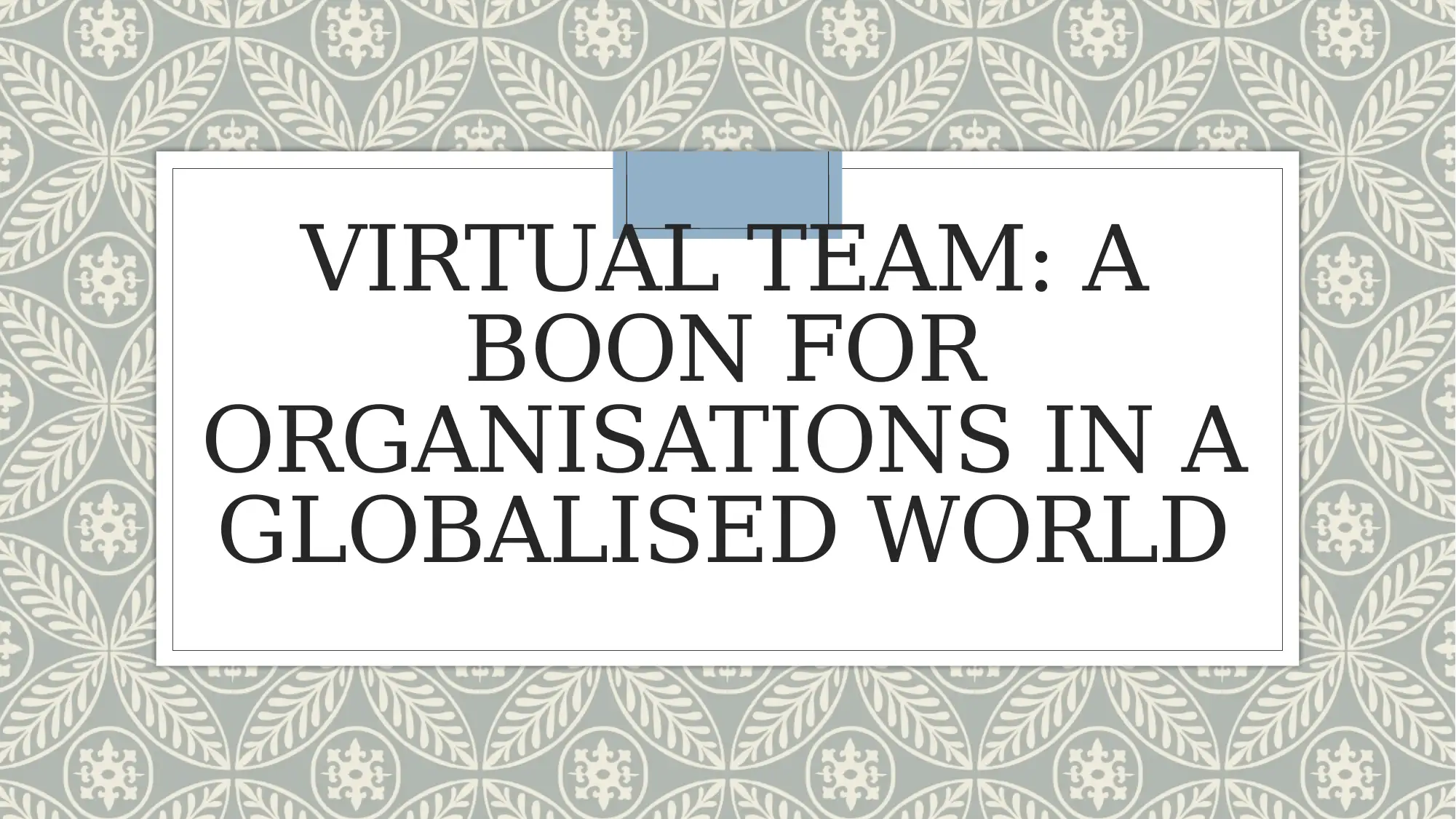
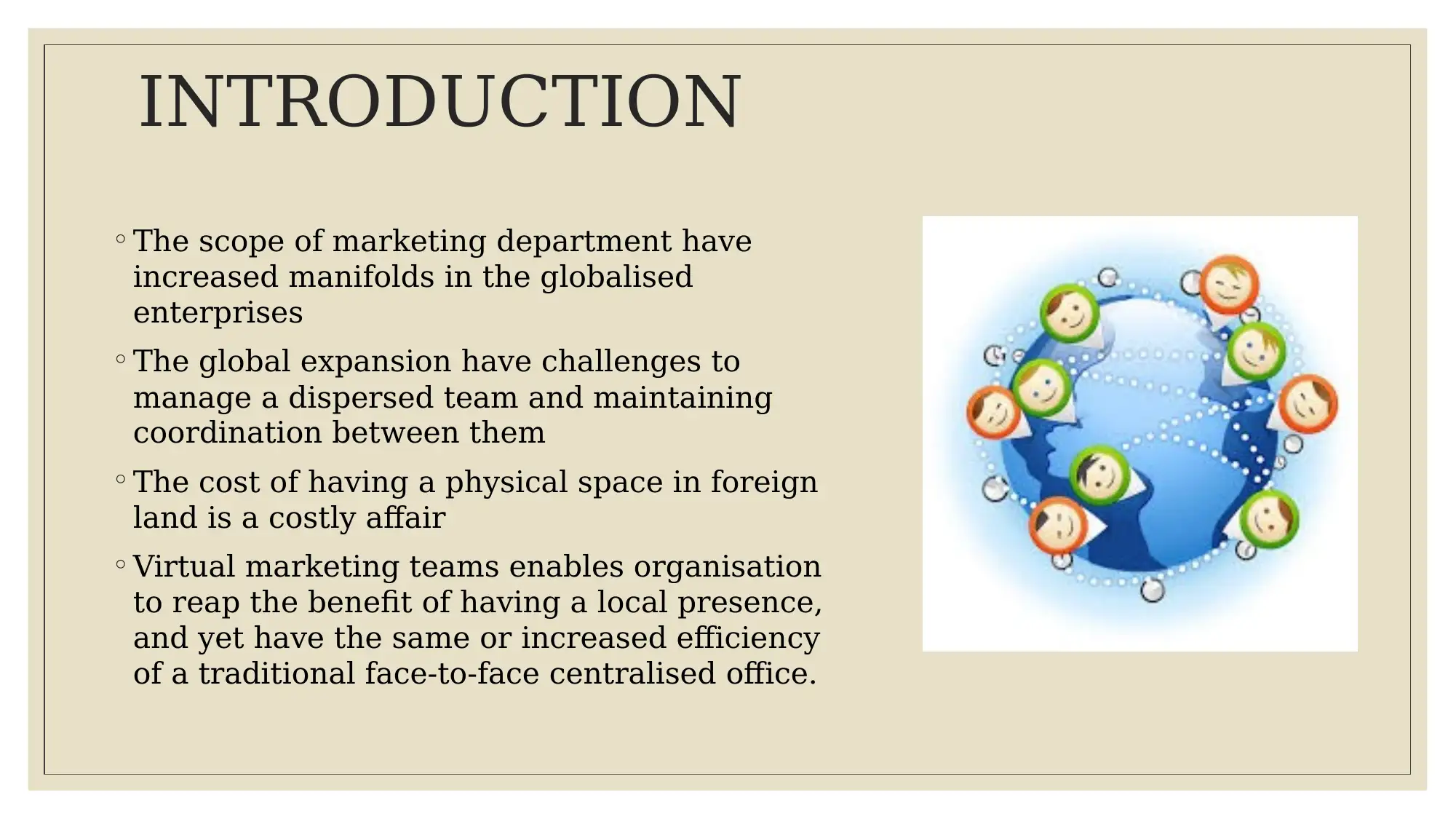
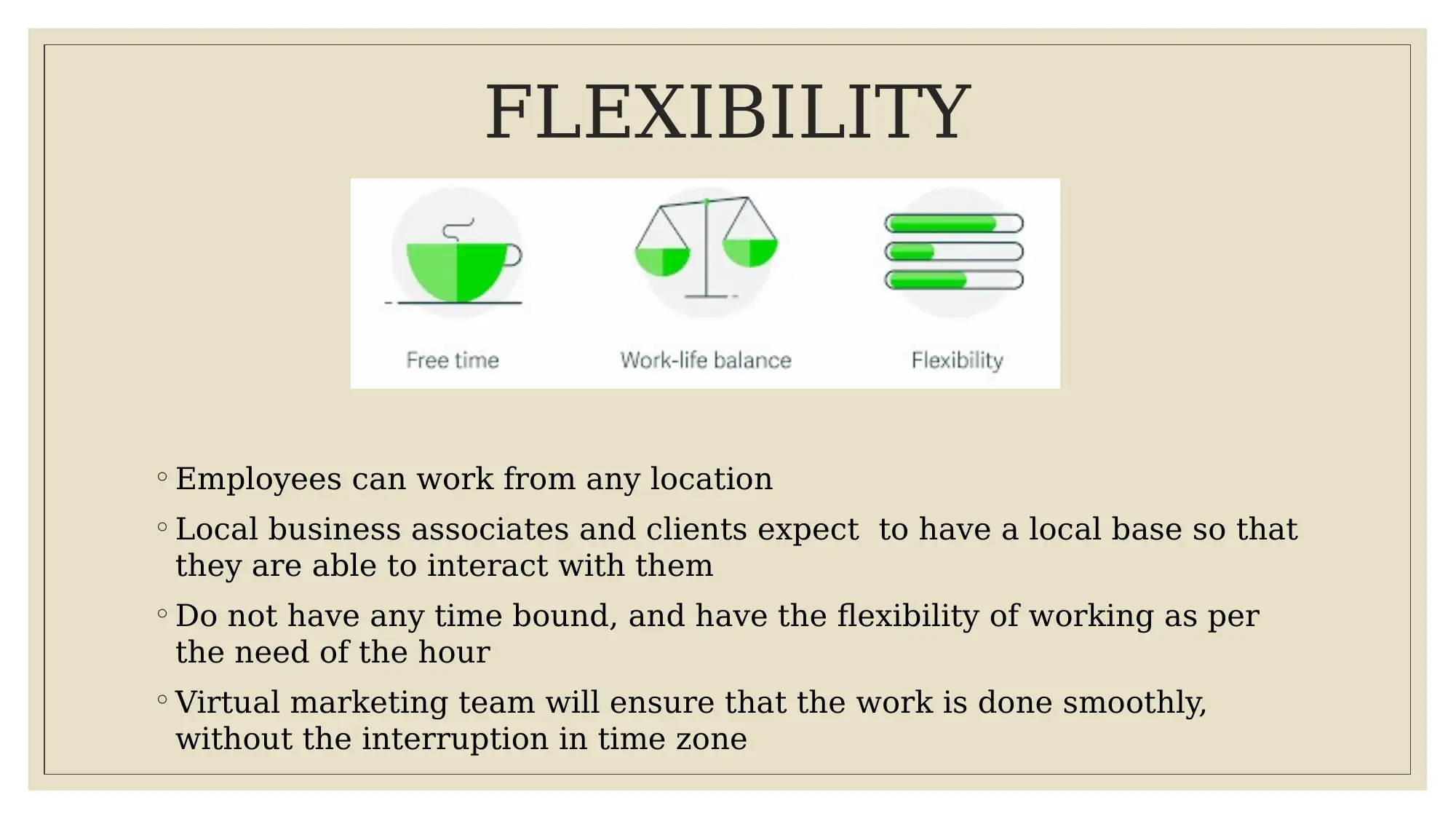


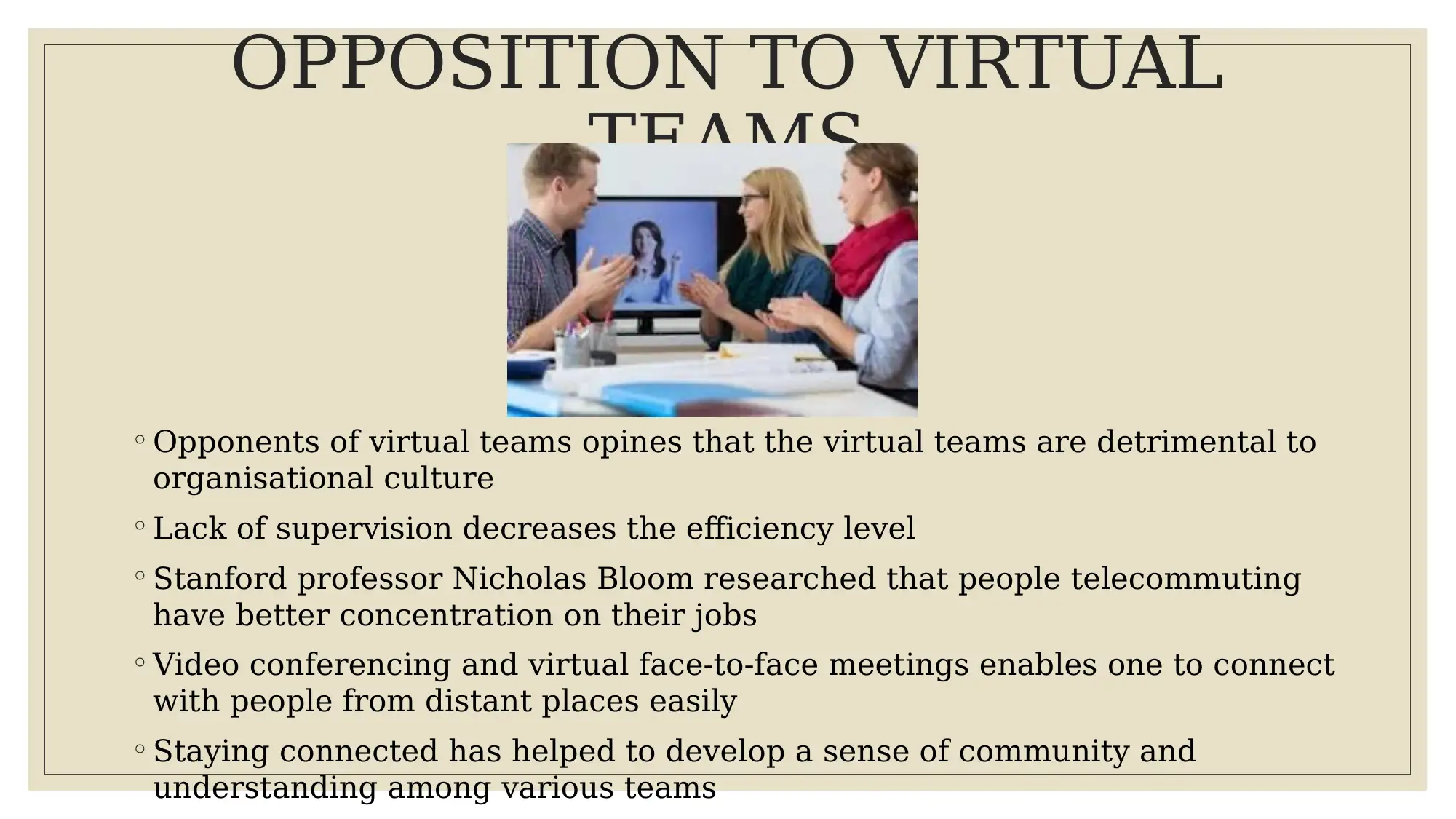
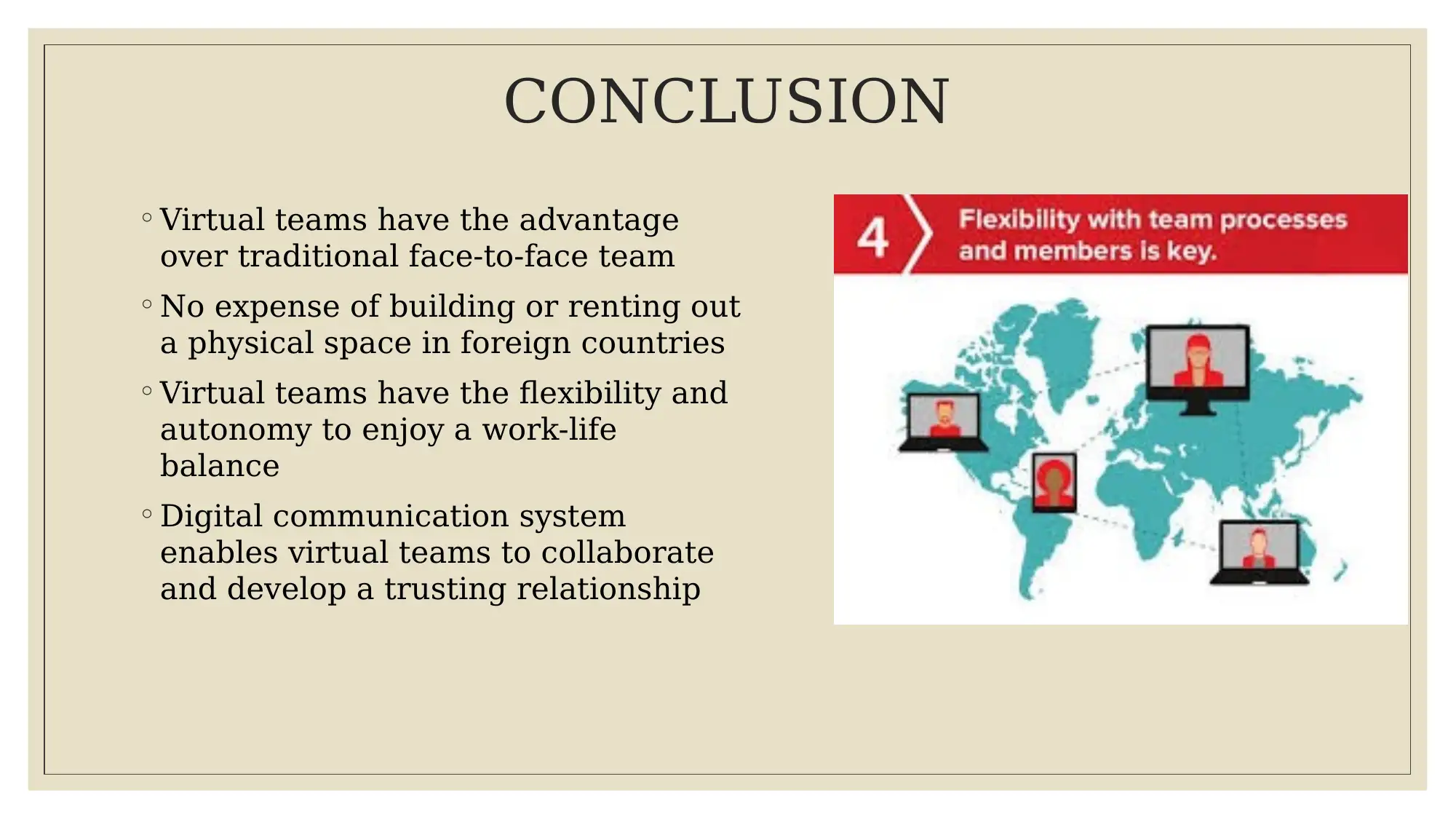
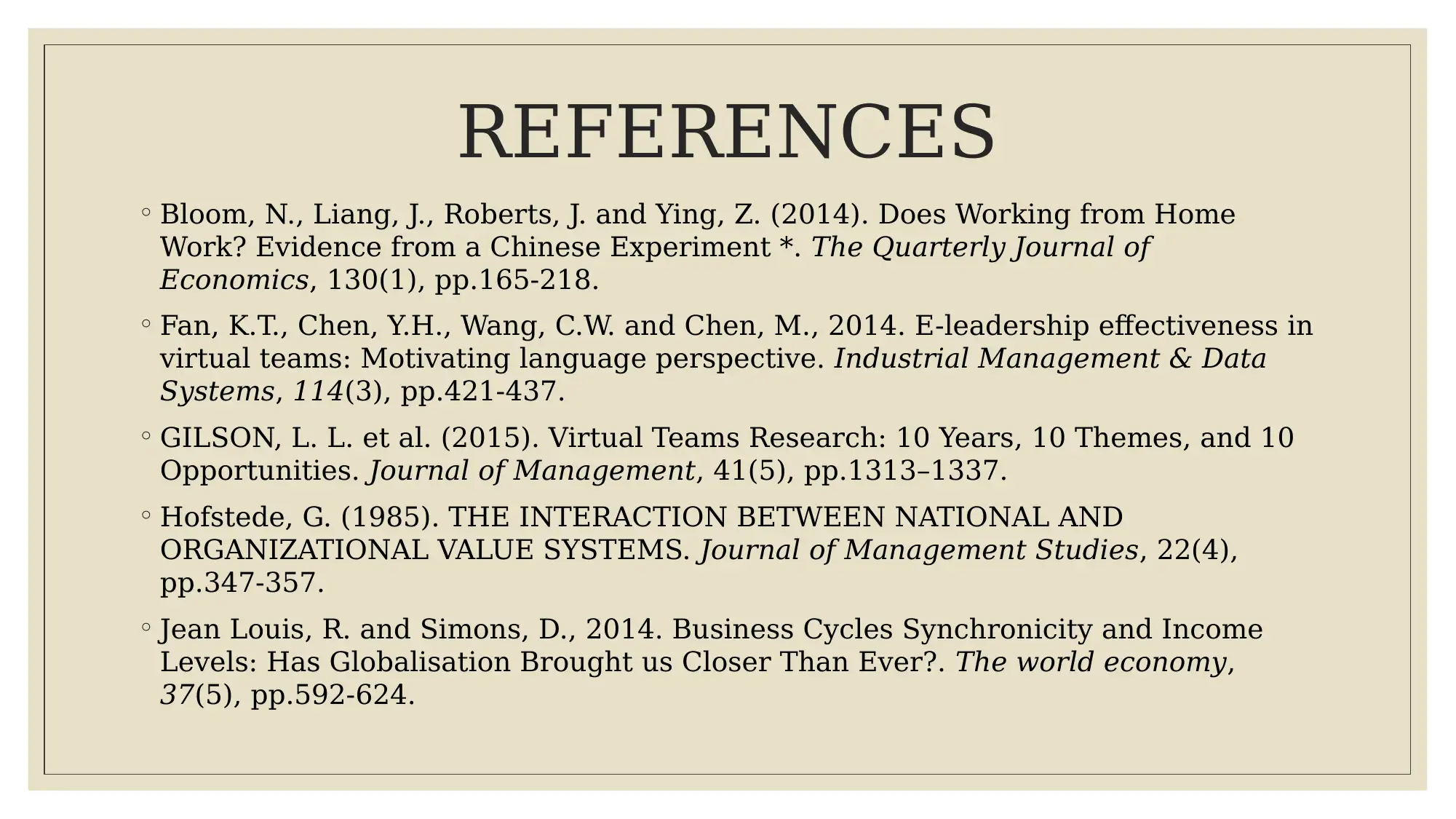






![[object Object]](/_next/static/media/star-bottom.7253800d.svg)